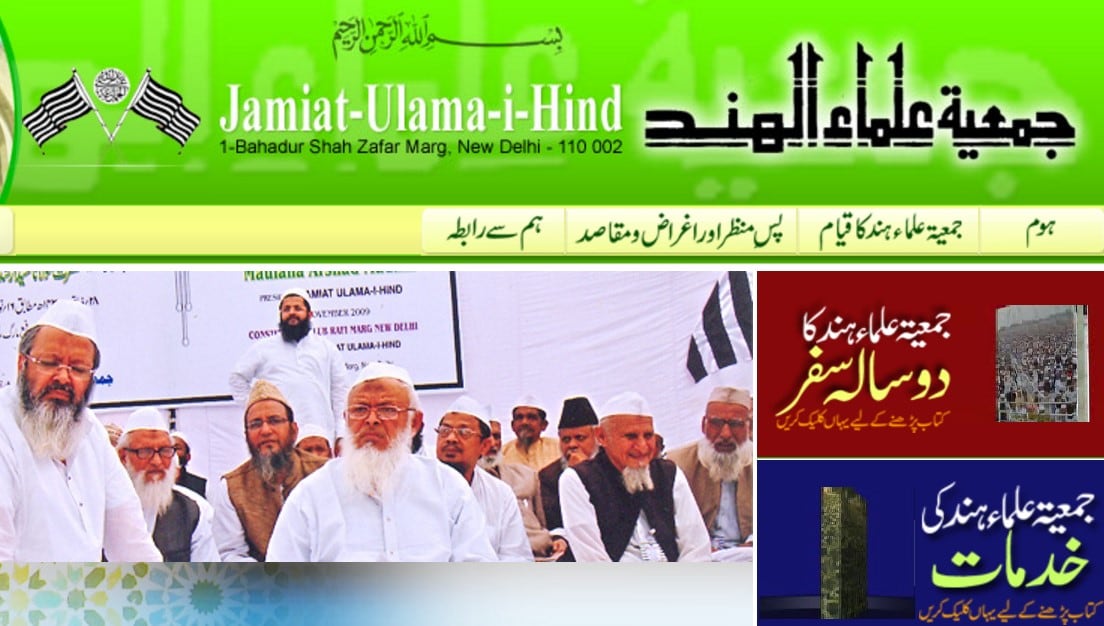
On February 5, 2016, the Jamiat Ulema-i-Hind (JUH, or the Organization of Indian Islamic Scholars) attorney Ejaz Maqbool told the Supreme Court of India that since Muslim personal laws in India originate from the Koran, it cannot be questioned by the SC. The JUH, founded in 1919, is a leading Deobandi network of Islamic clerics across India.
In India, there are no "Muslim personal laws" as such; the reference refers to the existence of some shari'a laws from India's pre-Independence days, under which Indian Muslims marry, divorce, and inherit. These, however, are not codified as laws, meaning that every Indian cleric is in practical terms a judge who can issue orders to Muslims in these three areas.
This lack of clarity in the Indian legal system has led to many problems. Muslim women are divorced arbitrarily by husbands using "triple Talaq," the practice of uttering "Talaq" (divorce) three times. Further, since no such laws exist, Muslim husbands are also forced to divorce under these non-codified shari'a laws, because the Indian courts do not admit divorce applications.
As a result, there is a movement in India for the enactment of the Uniform Civil Code, a goal set by the framers of the Indian Constitution for future governments to enact laws which will apply equally for members of all communities in India. However, the Islamist organizations in India have always opposed any demand for the Uniform Civil Code.
SUPPORT OUR WORK

The following are excerpts from an Indian media report on the JUH's statement to the Supreme Court of India that Muslim personal laws flow from the Koran and cannot be scrutinized by the court:
"Jamiat-Ulama-i-Hind, the powerful body of Muslim clerics, has said that Muslim personal law flows from the Holy Koran and cannot be subjected to any scrutiny by the Supreme Court based on principles of the Constitution.
"'Mohammedan law is founded essentially on the Holy Koran and this cannot fall within the purview of the expression "laws in force" as mentioned in Article 13 of the Constitution, and hence its validity cannot be tested on a challenge based on Part-III of the Constitution (guaranteeing fundamental rights, including right to equality),' stated the JUH application, which was filed through advocate Ejaz Maqbool.
"The assertion by the body marks a fierce challenge to the intent to extend the principle to gender equality to Muslim women, and can open a fresh phase in the debate on whether personal laws based on religion can trump the Constitution. The debate will require the... [Indian] government to spell out its stand on the fraught issue.
"Last year, while entertaining a petition, a two-judge bench of Justices A R Dave and Adarsh Goel had directed registration of a separate PIL [public interest litigation application] to consider the rights of Muslim women, as there was no safeguard against arbitrary divorce (triple talaq) and second marriage by Muslim men during... their first marriage. The court had issued notice to the attorney general and National Legal Services Authority (Nalsa).
"On Friday [February 5], a bench of Chief Justice T. S. Thakur and Justices A. K. Sikri and R. Banumathi took up the petition titled 'Muslim Women's Quest for Equality' and agreed to make JUH a party to the proceedings and sought responses from the JUH, the AG [attorney general] and Nalsa on the questions posed by the SC [Supreme Court] in six weeks. The All India Muslim Personal Law Board [a non-governmental Islamist organization] is also expected to request the SC to make it a party in the case.
"The JUH also referred to Article 44, which figures as a provision in the Constitution, providing that the state shall endeavour to secure for the citizens a Uniform Civil Code throughout the territory of India. But the JUH said, 'Article 44 envisaging UCC is only a directive principle and is not enforceable. This article by implication recognizes the existence of different codes applicable to different religions in matters of personal law and permits their continuance until the state succeeds in its endeavour to secure for all citizens a UCC.'
"It said the Muslim Women (Protection of Rights on Divorce) Act, 1986, a legislation brought by the... [Indian] government [at that time] to step around the SC-directed equality in maintenance for Muslim women in the Shah Bano case, provided for the rights of Muslim women in matters of divorce and maintenance. [Shah Bano, a destitute Muslim woman, was awarded alimony by the Supreme Court, but the Indian government at that time appeased the Islamists by bringing in the law to quash the SC order.]"
Source: The Times of India (India), February 6, 2016.




